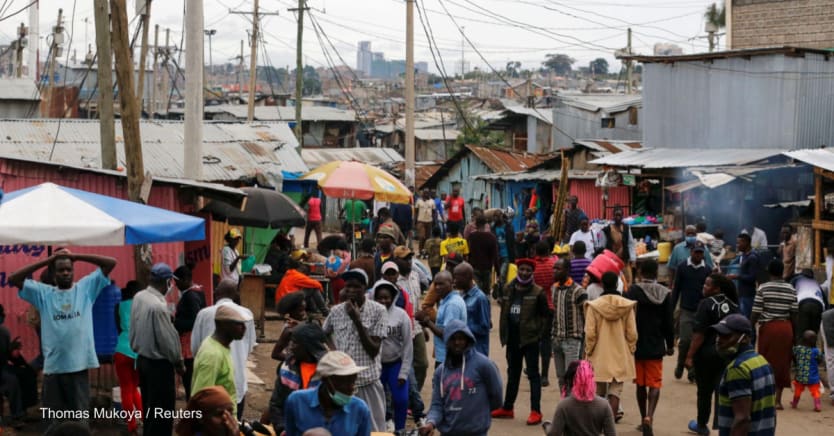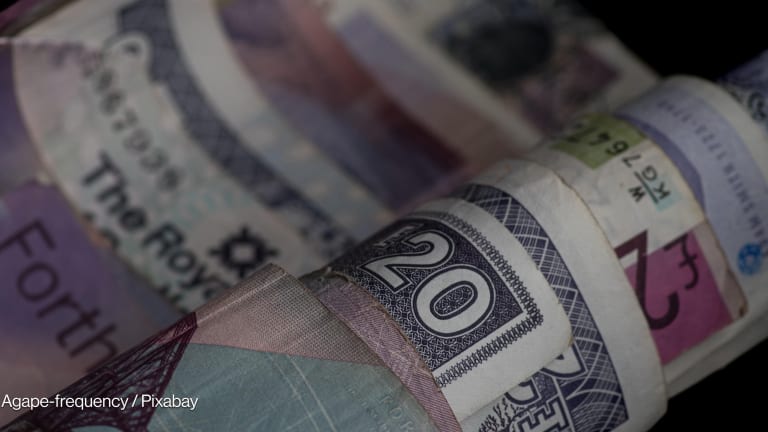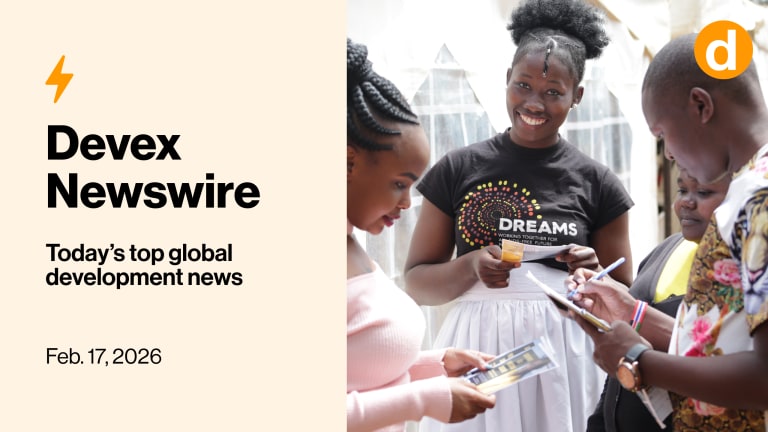
The Kenyan government’s cash transfer program failed to protect most of the vulnerable people who disproportionately suffered the economic fallout from the COVID-19 pandemic, a new report released by Human Rights Watch alleges. Political leaders funneled some funds to friends, relatives, and supporters; enrolled participants received less money than promised; and the implementation of the program was shrouded in secrecy, the organization found.
“Who received that money?” Otsieno Namwaya, East Africa director at HRW, asked during a press conference in Nairobi on Tuesday.
In response to the COVID-19 pandemic, the government of Kenya in March 2020 imposed strict measures, including a curfew — which is still in effect — as well as stay-at-home orders, school closures, movement restrictions, and the banning of international flights.
“Life was very hard at that time. That was the time we really needed our government.”
— Anette Okumu, community mobilizer in KenyaWhile the country was praised for its public health response in swiftly managing spikes in cases, the measures had severe consequences on the economy. Individuals living in informal settlements, many of whom are dependent on casual labor, were particularly vulnerable, causing families to skip meals and face eviction.
In the early months of the pandemic, President Uhuru Kenyatta announced a cash transfer program to help the most vulnerable in society cope with income losses. While initially aiming for 669,000 households, the Cabinet secretary for the National Treasury & Planning said it ultimately reached just under 333,000 households across the country with 9.3 billion Kenyan shillings — or about $93.3 million — according to HRW.
Though the program is nationwide, HRW conducted its study in Nairobi, whose informal settlements contain an estimated 600,000 households. The government said its cash transfers benefited only 29,000 households in Nairobi settlements in the program’s first phase — or fewer than 5%. HRW said the selection process for recipients lacked transparency and no explanation was given for why thousands of households that met the stated criteria were not included.
While those enrolled last year were supposed to receive 35 weekly transfers at 1,000 shillings apiece, HRW found that most received far fewer, such as only two or four payments in total. The transfers also started later and ended earlier than the government said, according to HRW. Names were dropped from the lists of people collected by community leaders who were tasked with identifying recipients, and in their place other names were added without explanation, Namwaya said.
“Where do those names come from? Who are those people? Nobody knows,” he said.
Emily Wangare, a community mobilizer in the informal settlement of Mathare, said she went from door to door to identify recipients, but many of the most vulnerable people she included on her lists did not receive the money. For example, a family with a father suffering from cancer and a mother recovering from a vehicle accident didn’t get any money, despite being on lists she submitted.
“Life was very hard at that time. That was the time we really needed our government,” said Anette Okumu, another community mobilizer, who identified people for enrollment in the informal settlement of Kibera.
HRW found that government officials — including at least one member of Parliament, people in the governor’s office, and senior officials in the nation’s ministries — registered family, friends, and supporters, including people with stable jobs, Namwaya said. In some instances, there are indications that money was also sent to some government officials.
“It allowed government officials to bypass the criteria that had been laid out for selecting the beneficiaries, in the process selecting their own friends and relatives,” Namwaya said.
The organization also found the government failed to generate awareness around the program, leaving people uninformed about its existence or how they could register.
Namwaya called for an investigation into the management of the program, as well as the release of the enrollment lists to the nation’s auditor general, Ethics and Anti-Corruption Commission, and other government agencies.
The government stopped the program in November, as the pandemic wore on and restrictions remained in place. Businesses in informal settlements have yet to receive support, Namwaya said.
Separately, in September, the Ethics and Anti-Corruption Commission recommended the prosecution of at least 15 top government officials and businesspeople over the alleged misuse of millions of dollars intended to fight COVID-19 in the country, but nobody has yet been charged.
Update, July 20, 2021: This article has been updated to clarify that government officials in certain roles allegedly registered associates with the cash program.








